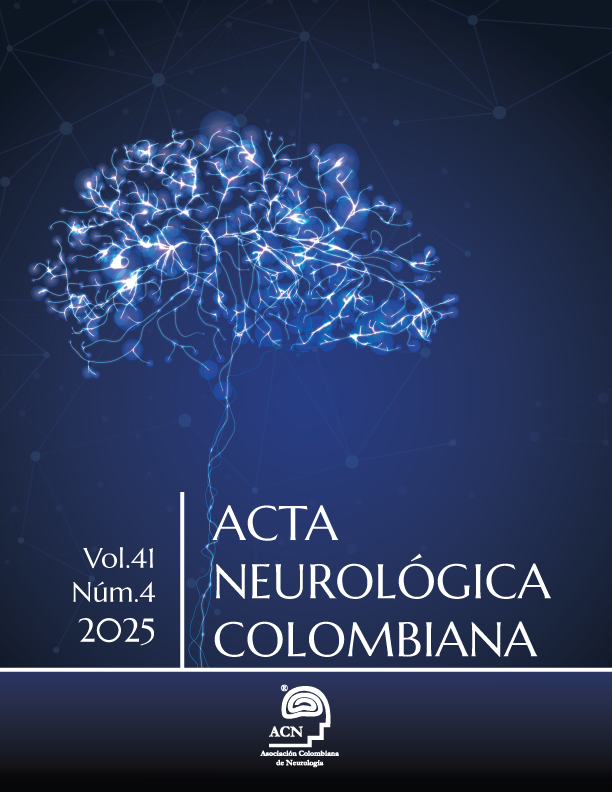Resumen
Introducción: el síndrome de Schmahmann (SACC) es una afectación del cerebelo que incluye alteraciones cognitivas y afectivas, cursa con deterioro ejecutivo, deficiencias del procesamiento visoespacial, déficits lingüísticos y alteraciones afectivas. El diagnóstico es principalmente neuropsicológico y es respaldado por estudios de neuroimagen.
Presentación del caso: se presenta un paciente de 27 años de edad, con antecedentes de consumo de sustancias desde los 16 años y con diagnóstico de VIH positivo. Reporta dificultades de pronunciación fonética, deficiencia para ejecutar movimientos con extremidades derechas, lateropulsión derecha y diplopía binocular horizontal izquierda con presencia de mareos. Destaca el habla con disartria escandida, dismetría, disdiadococinesia e hipotonía de extremidades derechas.
Discusión: se realizó exploración neuropsicológica con la escala del síndrome afectivo cognitivo cerebeloso, figura compleja de Rey y el test de depresión de Beck. Los resultados evidenciaron dificultades de planificación relacionados con la memoria, la afectación fonética y la presencia de depresión leve, elementos asociados al SACC. Asimismo, los estudios de resonancia magnética confirmaron lesión en el hemisferio cerebeloso derecho que se extendía hacia el pedúnculo medio y el puente dorsal bilateral, respaldando el diagnóstico.
Conclusiones: este caso permitió considerar patologías cerebelosas más allá de las típicas funciones conocidas, enfatizando el uso de evaluaciones neuropsicológicas para detectar déficits sutiles que se suelen pasar por desapercibidos al reconocer un SACC.
Citas
Sankey E, Srinivasan E, Mehta V, Bergin S, Wang T, Thompson E, et al. Perioperative assessment of cerebellar masses and the potential for Cerebellar Cognitive Affective Syndrome. World Neurosurg. 2020;144:222-30. https://doi.org/10.1016/j.wneu.2020.09.048
Schmahmann JD, Sherman JC. The cerebellar cognitive affective syndrome. Brain. 1998;121(4):561-79. https://doi.org/10.1093/brain/121.4.561
Manto M, Mariën P. Schmahmann's syndrome-identification of the third cornerstone of clinical ataxiology. Cerebellum Ataxias. 2015;2:2. https://doi.org/10.1186/s40673-015-0023-1
Stoodley C, Schmahmann J. Evidence for topographic organization in the cerebellum of motor control versus cognitive and affective processing. Cortex. 2010;46(7):831-44. https://doi.org/10.1016/j.cortex.2009.11.008
Levisohn L, Cronin-Golomb A, Schmahmann J. Neuropsychological consequences of cerebellar tumour resection in children: cerebellar cognitive affective syndrome in a paediatric population. Brain. 2000;123(5):1041-50. https://doi.org/10.1093/brain/123.5.1041
Argyropoulos G, van Dun K, Adamaszek M, Leggio M, Manto M, Masciullo M, et al. The cerebellar cognitive affective/Schmahmann syndrome: a task force paper. Cerebellum. 2020;19(1):102-25. https://doi.org/10.1007/s12311-019-01068-8
Tedesco A, Chiricozzi F, Clausi S, Lupo M, Molinari M, Leggio M. The cerebellar cognitive profile. Brain. 2011;134(12):3672-86. https://doi.org/10.1093/brain/awr266
Bodranghien F, Bastian A, Casali C, Hallett M, Louis E, Manto M, et al. Consensus paper: revisiting the symptoms and signs of cerebellar syndrome. Cerebellum. 2016;15(3),369-91. https://doi.org/10.1007/s12311-015-0687-3
Abderrakib A, Ligot N, Naeije G. Cerebellar cognitive affective syndrome after acute cerebellar stroke. Front Neurol. 2022;13:906293. https://doi.org/10.3389/fneur.2022.906293
Hoche F, Guell X, Vangel M, Sherman J, Schmahmann J. The cerebellar cognitive affective/Schmahmann syndrome scale. Brain. 2018;141(1):248-70. https://doi.org/10.1093/brain/awx317
Baillieux H, De Smet H, Dobbeleir A, Paquier P, De Deyn P, Mariën P. Cognitive and affective disturbances following focal cerebellar damage in adults: a neuropsychological and SPECT study. Cortex. 2010;46(7):869-79. https://doi.org/10.1016/j.cortex.2009.09.002
Schmahmann J, Weilburg J, Sherman C. The neuropsychiatry of the cerebellum-insights from the clinic. Cerebellum. 2017;6(3):254-67. https://doi.org/10.1080/14734220701490995
Wolf U, Rapoport M, Schweizer T. Evaluating the affective component of the cerebellar cognitive affective syndrome. J Neuropsychiatry Clin Neurosci. 2009;21(3):245-53. https://doi.org/10.1176/jnp.2009.21.3.245
Ahmadian N, van Baarsen K, van Zandvoort M, Robe PA. The cerebellar cognitive affective syndrome-a meta-analysis. Cerebellum. 2019;18(5):941-50. https://doi.org/10.1007/s12311-019-01060-2
Schmahmann JD. Ferdinando Rossi lecture: the cerebellar cognitive affective syndrome-implications and future directions. Cerebellum. 2023;22(5):947-53. https://doi.org/10.1007/s12311-022-01456-7

Esta obra está bajo una licencia internacional Creative Commons Atribución-NoComercial-SinDerivadas 4.0.


